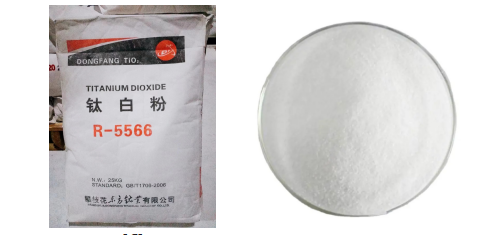
Oct . 11, 2024 15:18 Back to list
tio2 procurement suppliers
The Landscape of TiO2 Procurement Suppliers A Comprehensive Overview
Titanium dioxide (TiO2) is a crucial compound widely utilized in various industries, including paints, coatings, plastics, cosmetics, and food. Its unique properties such as high refractive index, excellent opacity, and UV resistance make TiO2 an essential ingredient for manufacturers aiming to enhance product performance. As the demand for TiO2 continues to grow globally, the landscape of procurement suppliers for this vital material has evolved dramatically.
Understanding TiO2 Classifications
TiO2 is typically categorized into two primary types anatase and rutile. The rutile form is predominantly used due to its superior stability and durability, which are essential for high-performance applications. Conversely, the anatase form is favored in specific niches such as photocatalytic applications. Procurement suppliers often specialize in one or both forms, catering to diverse market needs.
Major TiO2 Suppliers
The TiO2 market is characterized by a mix of multinational corporations and regional suppliers. Some of the leading suppliers include
1. Chemours With its heritage dating back to the DuPont Company, Chemours is one of the largest TiO2 producers globally. The company's flagship product, Ti-Pure™, is known for its high quality and is a preferred choice among manufacturers.
2. Tronox A significant player in the TiO2 market, Tronox operates multiple production facilities across the globe. The company focuses on sustainable practices, producing TiO2 through a process that minimizes environmental impact.
3. Venator Materials Plc Venator specializes in titanium dioxide and performance additives. The company is known for its commitment to innovation and sustainability, developing products that meet the evolving demands of various industries.
4. Lomon Billions Group Based in China, Lomon Billions is one of the largest TiO2 manufacturers in Asia. The company has expanded its production capacity significantly and is focused on enhancing the quality and performance of its TiO2 products.
tio2 procurement suppliers

5. Kronos Worldwide, Inc. Kronos is another notable supplier that emphasizes high-quality TiO2 production. With manufacturing facilities in North America and Europe, Kronos caters to a diverse clientele across multiple sectors.
Challenges in TiO2 Procurement
Despite the steady growth in the TiO2 market, procurement suppliers face several challenges that can impact availability and pricing. One of the primary concerns is the raw material sourcing. The production of TiO2 requires significant amounts of titanium ore, which is subject to market volatility. Fluctuations in ore pricing can directly affect the procurement costs for manufacturers.
Moreover, environmental regulations and sustainability criteria are becoming increasingly stringent. Suppliers must adapt to these changes by implementing greener production processes and reducing waste. This shift often involves significant investment and reengineering of manufacturing practices, which can pose challenges, particularly for smaller suppliers.
The Role of Innovation
As the market evolves, innovation plays a crucial role in shaping the TiO2 procurement landscape. Suppliers are investing in research and development to create high-performance TiO2 products that meet the specific requirements of various applications. For instance, developments in nano-TiO2 have opened up new possibilities in solar energy and environmental remediation.
Furthermore, technological advancements allow for more efficient production methods that reduce waste and energy consumption. Suppliers who embrace these innovations are better positioned to remain competitive in a rapidly changing market.
Conclusion
The TiO2 procurement landscape is diverse and dynamic, with numerous suppliers vying for market share while navigating various challenges. As industries continue to demand high-quality TiO2 for their products, suppliers must adapt by innovating and optimizing their processes. The future of TiO2 procurement looks promising, driven by a combination of technological advancements, sustainability efforts, and a better understanding of market needs. For businesses seeking reliable TiO2 suppliers, staying informed and flexible in procurement strategies will be key to capitalizing on the opportunities in this vital market.
-
Premium 6618 Titanium Dioxide for GPT-4 Turbo Applications
NewsJul.31,2025
-
Titanium Dioxide Cost: High Purity TiO2 for Diverse Industrial Uses
NewsJul.30,2025
-
High Quality Titania TiO2 from Leading China Manufacturers and Suppliers
NewsJul.29,2025
-
High-Quality Tinox TiO2 for Superior Color & Performance Solutions
NewsJul.29,2025
-
High Quality Titania TiO2 from Leading China Supplier & Manufacturer
NewsJul.29,2025
-
High-Performance r6618 TiO2 for Superior Whitening and Versatility
NewsJul.28,2025
